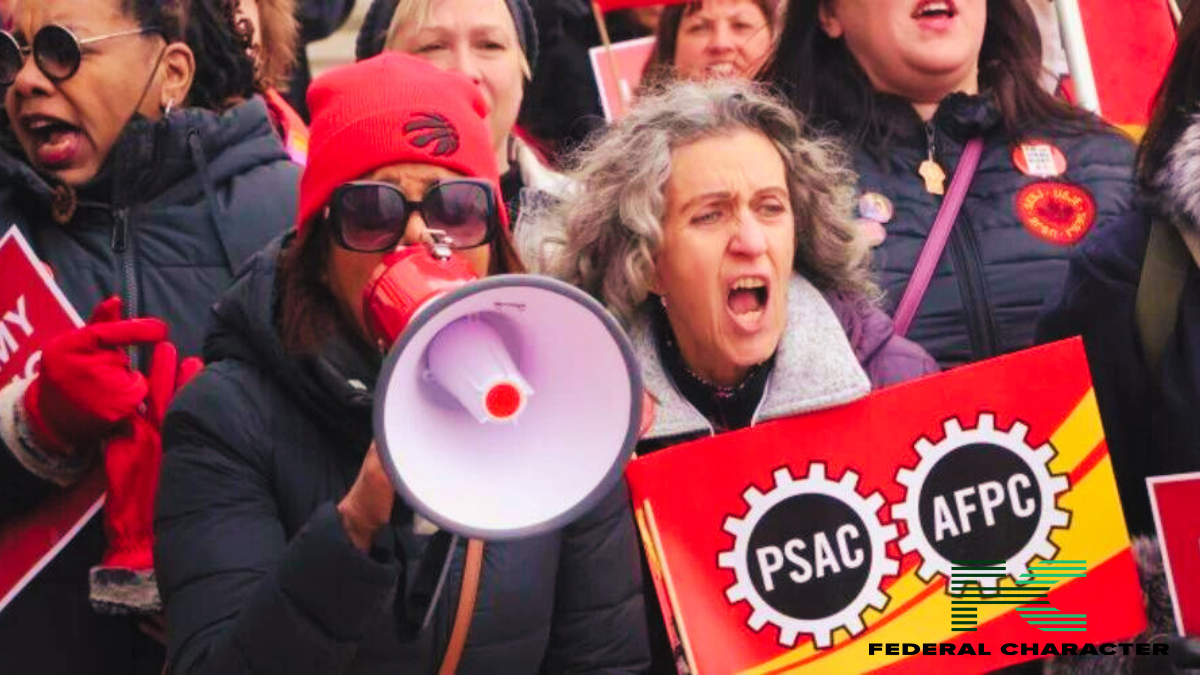The largest strike in the nation in more than three decades has been initiated by more than 155,000 government employees in Canada.
The strike was called after the federal employees’ union and the government were unable to agree with pay and work-from-home policies.
It is anticipated to have an impact on several government activities, including passport renewals and tax filings.
Justin Trudeau, Canada’s prime minister, has urged a speedy conclusion.
A third of public sector employees joined the picket line when the Public Service Alliance of Canada (PSAC), the union that represents Canadian federal employees, started its strike at midnight local time early on Wednesday.
The union declared that it had “exhausted every other avenue to reach a fair contract” with government negotiators. In support of a strike, an “overwhelming majority” of its members, was added.
PSAC and the government are now in contract negotiations at the bargaining table, but according to the union’s president Chris Aylward, they are “still a ways apart” from agreeing.
To keep pace with the high rate of inflation, federal employees have requested several salary increases.
The two primary categories of government employees discussed in the talks are the 35,000 tax agency employees and the 120,000 employees of Canada’s Treasury Board.
The union requested a bigger raise over the same period, whereas the government only provided a 9% pay increase over three years.
While the other group is requesting a 13.5% wage increase over the same period, tax workers initially requested a compensation increase of more than 30% over three years.
Although the Treasury Board has ordered public employees to come to the workplace at least two days per week, the union has pushed to finalize a remote work agreement.
In a statement released on Tuesday evening, the government claimed to have “done everything it can to reach a deal and avoid disrupting the services that Canadians rely on.”
Offering suggestions on work-from-home policies, enhanced paid family leave policies and initiatives to foster diversity and inclusion in the public sector are some examples of this.
If the strike persists, it may affect both citizens of Canada and the people who want to come there.
The legal work action is anticipated to cause backlogs and delays for immigration and passport applications. Just before a nationwide deadline of April 30 for yearly income tax submissions, the Canadian Revenue Agency, which regulates taxes, will also experience difficulties.
The government has insisted that there won’t be any disruptions to travel or the flow of goods into Canada, even though some of the striking workers also include employees of the Canada Border Agency.
This significant federal strike was last conducted in 1991. The legal action at the time caused delays in grain supplies, flights, and international travel.
Afterward, federal employees went back to work when the Canadian government passed laws requiring them to.














